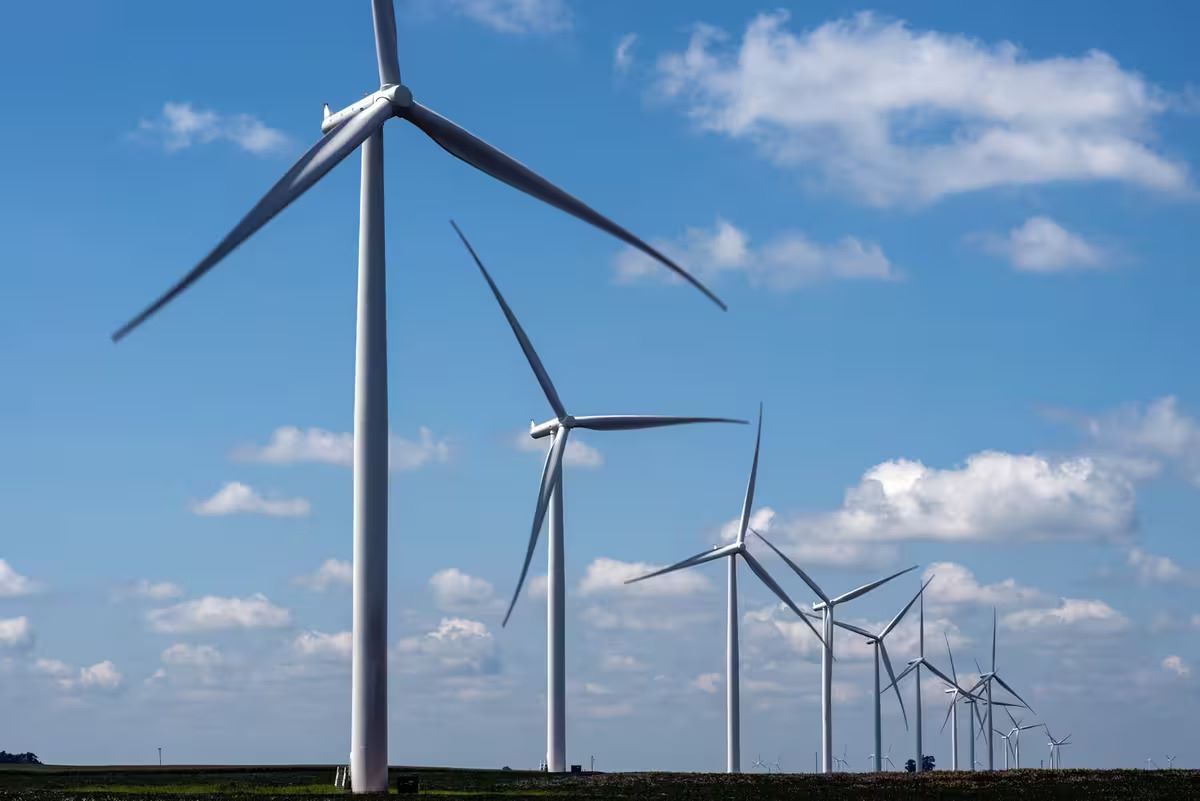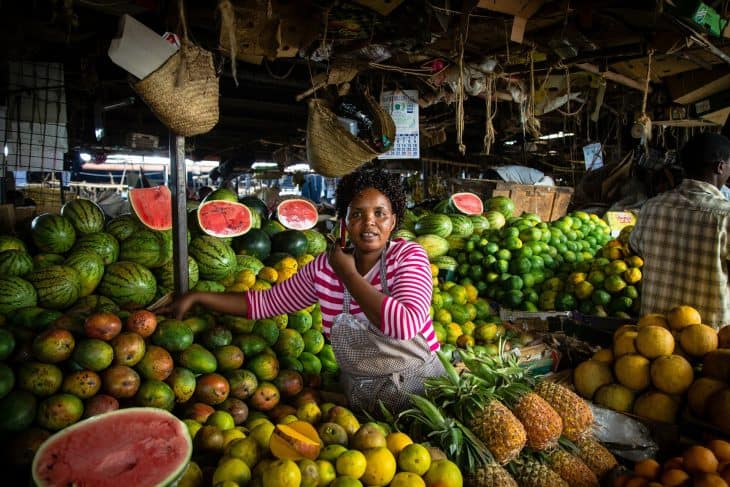
- Capital: Nairobi
- Population: 45,010,056 (2014)
- Currency: Kenyan Shilling (KES)
- Language: Swahili, English
- Government: Presidential Republic
- President: Uhuru Kenyatta
- Religion: Christianity, Muslim
- Climate: Tropical coast, arid inland
- Demonym: Kenyan
- Country Motto: Harimbee (We must all pull together)
- Cuisine: Kenya Has 4 National Dishes
- People: There Are 70 Different Tribes in Kenya
- Culture: There Are 4 Major Tribal Styles of Music in Kenya
- History: The History and Origins of the Name ‘Kenya’ Are Possibly Rooted in Hebrew Language
- Geography: Kenya Is the 47th Largest Country in the World
- Industry: There are 2 Main Industries in Kenya: Coffee and Tourism
- Economy: Since Independence in 1963, Kenya’s Economy Has Been Troubled
- Geography: Kenya Is Home to “The Big Five” Animals
- Fashion: The Country Is Famed for an Unusual Garment Called a Khanzu
- History: British Rule in Kenya Ended in 1963, But Not Before a Terrifying Revolt by The Mau Mau
- Kenya Doesn’t Have a Public Transport System!
- Princess Elizabeth became Queen Elizabeth II in Kenya
- Kenya Is Noted for Its Athletes
- ”The Ghost and The Darkness” Is a Film That Tells a True Story of Gruesome Kenyan History
- Giant Crocodiles Once Traversed the Country
Kenya Has 4 National Dishes
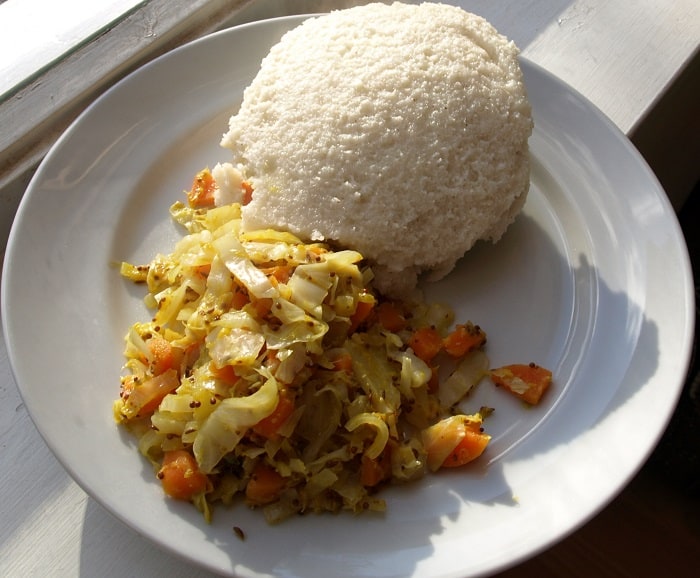
The first of our Kenya facts centers on food. Kenya has a very rich and diverse history in terms of its dishes. There are four dishes which are of particular note. The first is Ugali, which is a maize cake and is used as a carbohydrate accompaniment to vegetable and meat dishes. The second is called Sukuma Wiki, and is a stew made from green, leafy vegetables. In many places in Kenya, it becomes the foundation for a meal. The name Sukuma Wiki has an interesting translation. It means “stretch the week” and it implies that the dish is used to eke out other ingredients for meals. Thirdly, there is Nyama Choma, which is cooked over an open fire and made from roasted goat or beef. It is usually served with Ugali. Finally, there is Kachumbari, a dish which many of us might recognize as a salsa type accompaniment, made from chopped tomatoes, onion, pepper, cilantro and lemon juice. It is usually served with Nyama Choma.
There Are 70 Different Tribes in Kenya
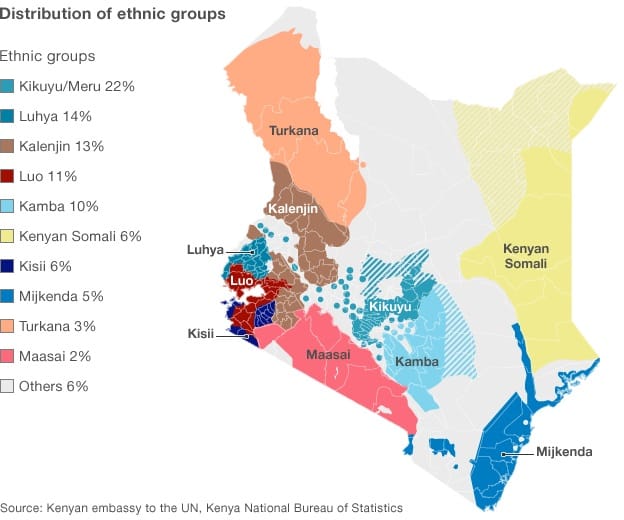
Kenya facts tell us that the county has a diverse heritage in terms of its people. It’s widely accepted that the earliest origins of man can be traced back five million years ago to what is now the northern half of Kenya. In the 21st century, there are some 70 tribes in the country, speaking 30 different languages or dialects. The biggest ethnic group is called the Kikuyu and the smallest is the El Molo who live on Lake Turkana. The tribes can generally be split into three different main groupings: the Bantu who arrived in 500BC from West Africa; the Nilotic who arrived in 1000BC from Sudan; and, finally, the Cushites who arrived in 2000BC from Somalia.
There Are 4 Major Tribal Styles of Music in Kenya
Whilst the contemporary music scene in Kenya is strong, each ethnic tribe has its own musical heritage and style stretching back many thousands of years. There are four main types of song/music that reflect the Kenyan culture the most. These are Kikuyu, Luhya Ohangla, Lingala and Benga music. The first two styles sound more contemporary and are usually backed by strong drumming patterns and guitars. If you head towards the Kenyan coast you might be more likely to hear a style of music called Taraab, which is strongly influenced by Indian and Arab culture and incorporates their traditional beats and rhythms into the Kenyan style.
The History and Origins of the Name ‘Kenya’ Are Possibly Rooted in Hebrew Language
There are disputes about how the name Kenya came to exist, and another one of the very interesting Kenya facts tells us the possible origins of the name. Depending on who you choose to believe, it has different meanings and translations. Some believe it comes from the Hebrew for the word ‘animal horn’. Some believe it is a corruption of a tribal name, Kiringaya. However, if you choose to believe the Russians or the British, they say that the name Kenya can also mean “innocence” or “harmless”. Another explanation is that British people found the country’s original name Kiringaya too difficult to pronounce, so re-named it Kenia to save time. Over time, this stuck.
Kenya Is the 47th Largest Country in the World
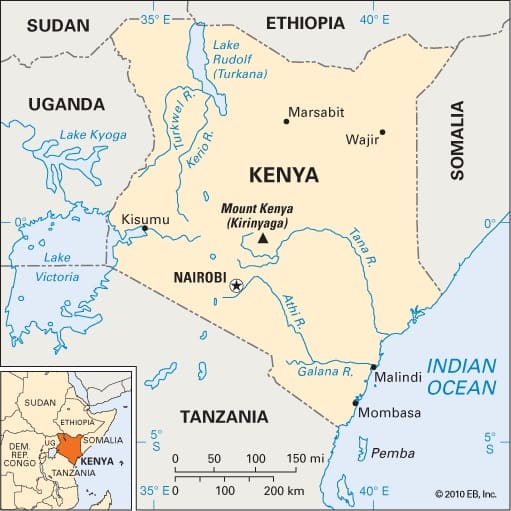
It roughly covers 224,081 miles. It is therefore about the same size as Texas and ranks just in front of Madagascar in terms of size. Kenya is home to the second-highest peak in Africa, namely Mount Kenya, which is 17,057 feet high. One of its most interesting geographical features is the Great Rift Valley, which was formed some 20 million years ago when the crust of the earth was split.
There are 2 Main Industries in Kenya: Coffee and Tourism
However, one of them is not popular amongst the Kenyan people! Kenya facts relating to the country’s industry tell us that coffee is the main product of the country, but it is more often than not seen as something for export only as Kenyans do not, as a rule, like to drink it. On the whole, they prefer beer and tea. These are the two main beverages consumed in the country. Kenyans also prefer to drink their beer at room temperature, or even warm, and wouldn’t consider drinking ice-cold beer!
The other main industry in the country is, of course, tourism. Kenya is Africa’s most popular safari destination and there are also many busy coastal resorts that are easy to access because the country has such a decent infrastructure.
Since Independence in 1963, Kenya’s Economy Has Been Troubled
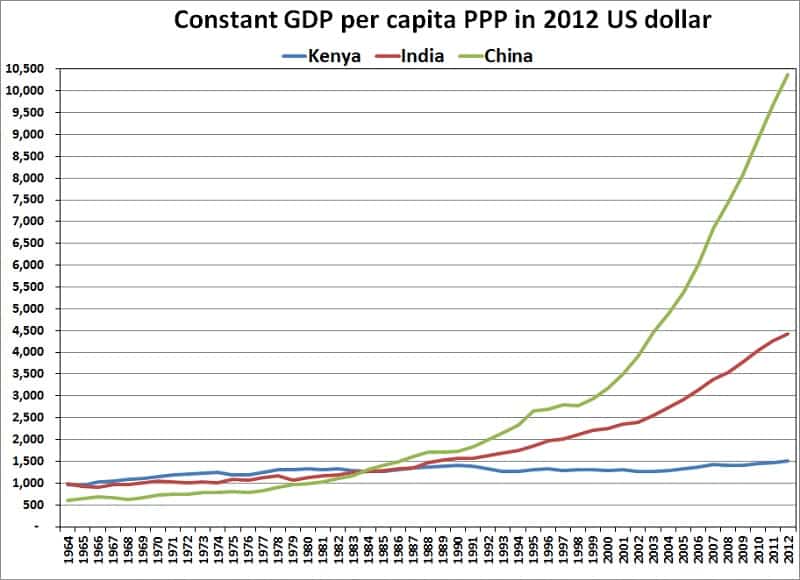
The country broke from colonial rule fully in 1963 and since then the economy has gone through inconsistent periods of prosperity and downturn. After independence, Kenya managed to achieve high economic growth, but, by the 1990s, the GDP of the country was often in negative figures, rising to 4% at its highest. However, since 2011 there has been a significant improvement in the country’s fortunes and it is now estimated that Kenya may be able to shift from being a traditionally low-income country to a middle-income status country. The current GDP figures per household in the country stand at $760 per month.
Kenya Is Home to “The Big Five” Animals
Kenya is one of the few countries that can claim to be home to the Big Five of the animal kingdom, namely, buffalos, elephants, leopards, lions, and rhinos. In Swahili, the Big Five are known by their other names mbogo (buffalo), Tembo (elephant), Chui (leopard), Simba (lion) and kifaru (rhino). Many tourists will travel to the country on safari to see these animals. The word safari also derives originally from Swahili and means “to travel”. Kenya facts about animals tell us that the reason the Big Five can live in the country is that the land and terrain (and climate) is so diverse. The country is made up of savannah, wetlands, and forests, so if you are ever lucky enough to visit, there’s a chance you could see all these in one trip.
The Country Is Famed for an Unusual Garment Called a Khanzu
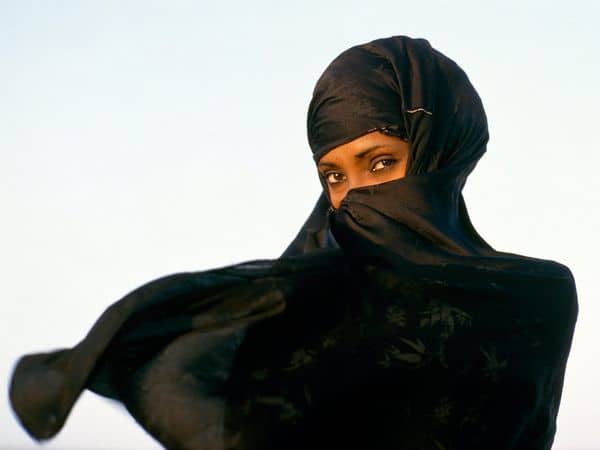
Interesting Kenya facts about fashion tell us that it is a country known for a garment called a khanzu. This is essentially a male-only piece of clothing and is a long, white flowing robe that is worn at many times of the day to keep men cool. Women have a similar garment called a bui bui, which they can wrap around themselves for full coverage. The main difference between this and a khanzu is that the bui bui is black rather than white. Men also have a traditional sarong to wear, called a kikoi.
British Rule in Kenya Ended in 1963, But Not Before a Terrifying Revolt by The Mau Mau
Between the years 1952 and 1959, there was a state of emergency in the country resulting from an uprising against British rule by the Mau Mau. Winston Churchill organized British counter operations against the coup. By the end of the seven-year campaign, the government home guard had killed some 4,700 Mau Mau insurgents.
Kenya Doesn’t Have a Public Transport System!
Believe it or not, there is no local government-run or state-run public transport in Kenya (at least not one that is road-based). For mass transit, the local people use something called a matatu, which is a large van that holds up to 13 travelers. These are privately run operations. Unless you can drive yourself, you might find it difficult to get around. The country does, however, have something called an “open road” policy which means that people from Kenya, Uganda and Tanzania can travel freely between the three countries, providing they have the right travel papers.
Princess Elizabeth became Queen Elizabeth II in Kenya
One of the little known historical Kenya facts relates to the British Royal Family. Many people don’t realize that the current Queen of Great Britain and the Commonwealth, Elizabeth II, actually heard she had become Queen while on holiday in Kenya in 1952. She was told by her husband Prince Phillip that her father, King George VI, had died in his sleep, while she was staying at the Tree Top Hotel. A member of staff who traveled with the couple on their trip said that she “went up the tree a princess and came down a queen”.
Kenya Is Noted for Its Athletes
There are many great Kenyan sporting heroes. Kenyan athletes have been well regarded in many different arenas, such as cricket, rugby, and football. However, they are most well-known and renowned for being supreme athletes, particularly over the marathon and long-distance running. The most notable runners from the country are Paul Tergat, John Ngugi and Catherine Ndereba. The latter has won the World Marathon Championship twice and the Boston Marathon four times!
”The Ghost and The Darkness” Is a Film That Tells a True Story of Gruesome Kenyan History
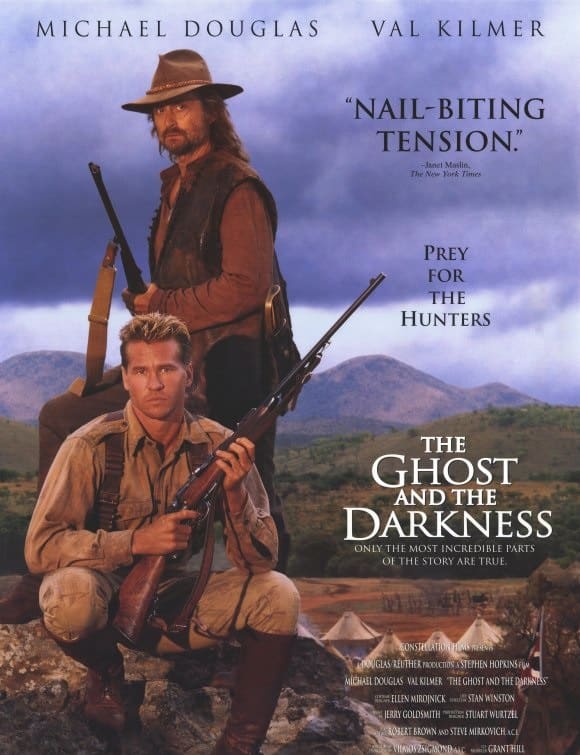
One of the most fascinating, yet gruesome, Kenya facts relate to a movie. This film, starring the actor Michael Douglas, is based on a true event that took place in the Tsavo National Park, where it is said lions attacked and ate people who were working to construct the Kenya-Uganda Railway. There are rumors which suggest there are lions who carry the same genes as those who carried out the attacks still living in the Tsavo Park to this day.
Giant Crocodiles Once Traversed the Country
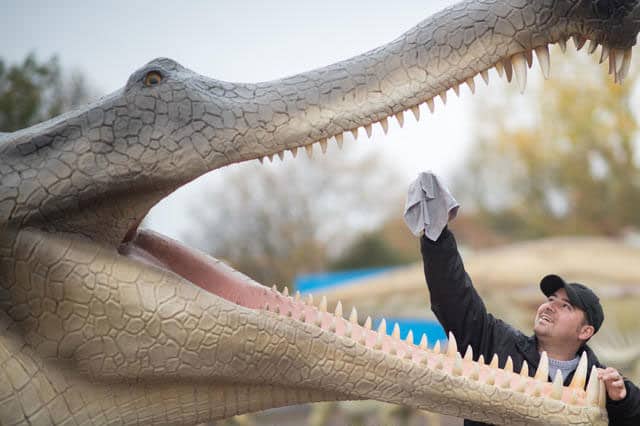
In 2004, excavations unearthed giant crocodile fossils (sometimes known as sarchosuchus) which were at least 200 million years old. This, in prehistory terms, dates them to the Mesozoic Era. They were discovered by a team from the University of Utah. Other fossils found in Kenya seem to suggest that primates were in existence in the country up to 20 million years ago
Kenya Facts – Facts about Kenya Summary
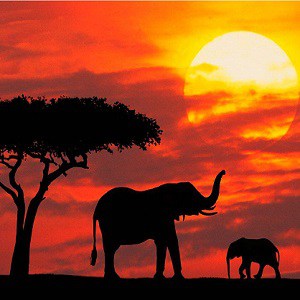 Facts about Kenya tell us that there are 70 tribes in the country and that each has their own local and regional dialects, though there are only two main languages in the country (English and Swahili). The country is home to “the Big Five” safari animals. It also produces huge quantities of coffee for export, though the Kenyans themselves do not often drink it! The country is home to the second-highest peak in Africa, Mount Kenya.
Facts about Kenya tell us that there are 70 tribes in the country and that each has their own local and regional dialects, though there are only two main languages in the country (English and Swahili). The country is home to “the Big Five” safari animals. It also produces huge quantities of coffee for export, though the Kenyans themselves do not often drink it! The country is home to the second-highest peak in Africa, Mount Kenya.
Was this page helpful?
Our commitment to delivering trustworthy and engaging content is at the heart of what we do. Each fact on our site is contributed by real users like you, bringing a wealth of diverse insights and information. To ensure the highest standards of accuracy and reliability, our dedicated editors meticulously review each submission. This process guarantees that the facts we share are not only fascinating but also credible. Trust in our commitment to quality and authenticity as you explore and learn with us.

